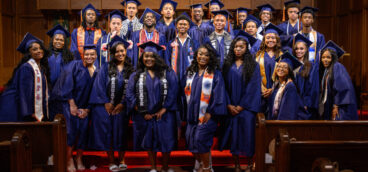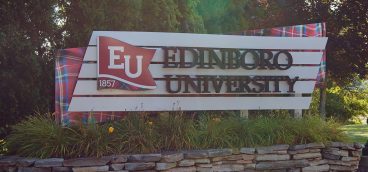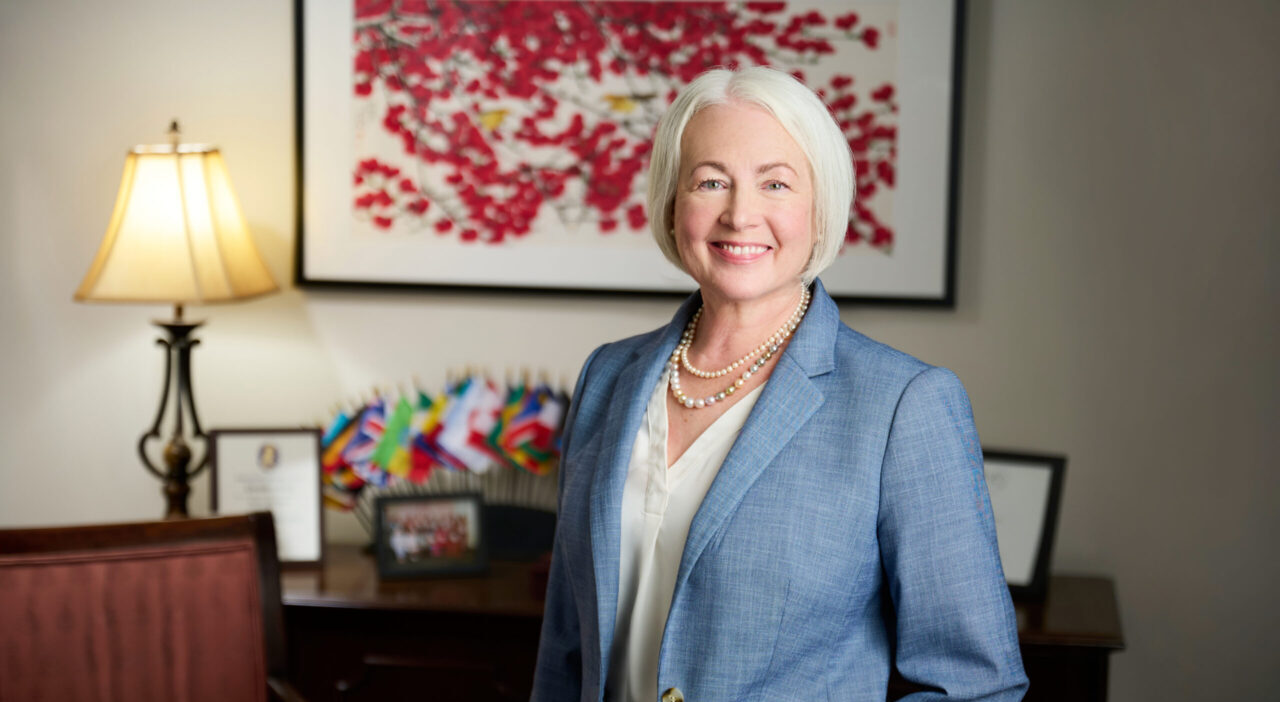
Editor’s note: We asked our region’s college presidents to answer one of the following questions:
How is AI affecting your educational approach, and what unusual challenges and opportunities does it present?
How much and in what ways are restrictions on international students affecting your institution, and what are you doing to adapt to these changes?
CHRISTINA A. CLARK, Ph.D LA ROCHE UNIVERSITY
International students are central to La Roche University’s mission, identity, and academic strength. Yet current immigration restrictions—including visa delays, travel bans, and shifting regulatory guidance—have introduced significant uncertainty into their lives. These disruptions carry real costs: separation from family, financial strain, and interruptions to their academic progress. As a Catholic university with a foundational and longstanding commitment to peace, social justice, and global understanding, La Roche takes seriously its responsibility to respond with clarity, compassion, and resolve. We monitor federal policy developments closely, advocate for equitable access through our elected representatives, and work directly with students to navigate each new challenge. Our staff provide individualized guidance, academic planning, and consistent support throughout the year. We view this work not simply as student support, but as a reflection of our mission in accordance with our core institutional values. In times of uncertainty, we are called to lead with principle. La Roche will continue to ensure that all students—regardless of nationality—are valued, protected, and empowered to thrive within a global community.
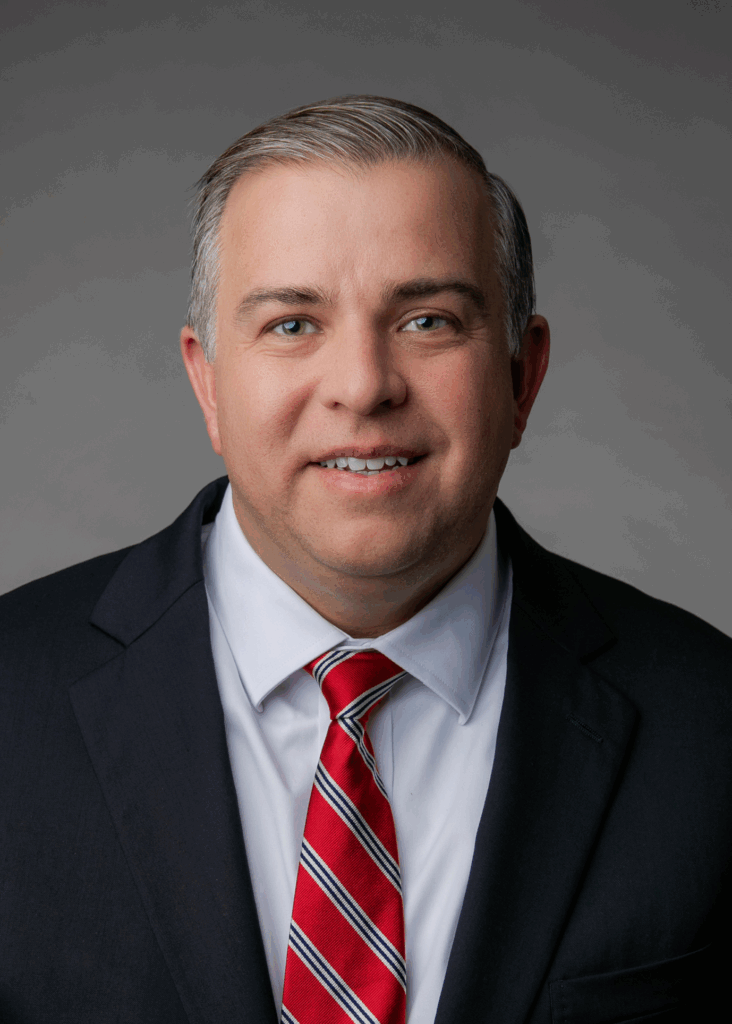
BRADLEY J. LINGO, GROVE CITY COLLEGE
Our educational approach is grounded in the pursuit of wisdom, not merely the transfer of information. To thrive in an era with almost unlimited digital access to information, our students will need technical skills and the character, judgment, and discernment necessary to understand a complex world. AI will disrupt higher education and the job markets our graduates will enter. It will support personalized learning, improve and streamline college administration, and offer data-driven insights — all to the benefit of students. It will be able to perform some of the work typically done by recent college graduates — doing research, gathering information, making calculations, and preparing reports. And it requires us to think carefully about how to prepare our graduates for the world, not just as it exists today, but for what it will look like 20 or 30 years from now. Regardless of how AI will shape the future, we must not let it substitute for the personal interactions and sense of community that are central to forming our students as adults. The core of what happens at Grove City College will remain unchanged, as it has for 150 years. Through the integration of faith and learning, we will build men and women of character who love God and serve their neighbors, nourish their souls, and teach them to appreciate and enjoy what is good, true, and beautiful. That’s the best way I know to prepare students for the future — whatever it may hold.
MARY FINGER, SETON HILL UNIVERSITY
As a Catholic, liberal arts institution, Seton Hill University’s educational approach remains steadfast in preparing students to think and act creatively, critically, and ethically. AI has the potential to enhance these values by offering innovative tools for exploration while prompting critical discussions about its ethical implications. Seton Hill’s approach is to integrate AI where appropriate across the curriculum. In business and technology classes, students leverage AI tools to summarize and analyze customer feedback datasets and predict consumer behavior in retail, or use machine learning algorithms to interpret financial performance metrics and build predictive models in Excel. At the same time, they evaluate AI outputs for bias to ensure ethical decision-making.
Students in liberal arts classes explore how AI might enhance their own creative processes while evaluating the threats it poses to creativity and creators and their intellectual property. Exploring AI through coursework reflects our commitment to preparing students for AI’s impact on their future careers. To support this, we’ve launched the AI Academy, a year-long professional development program for 30 faculty and academic support staff, which explores meaningful AI integration while addressing challenges like sustainability and human dignity. By thoughtfully leveraging AI, we ensure our students are equipped to navigate an AI-driven world with ethical clarity and professional readiness, in line with our mission.
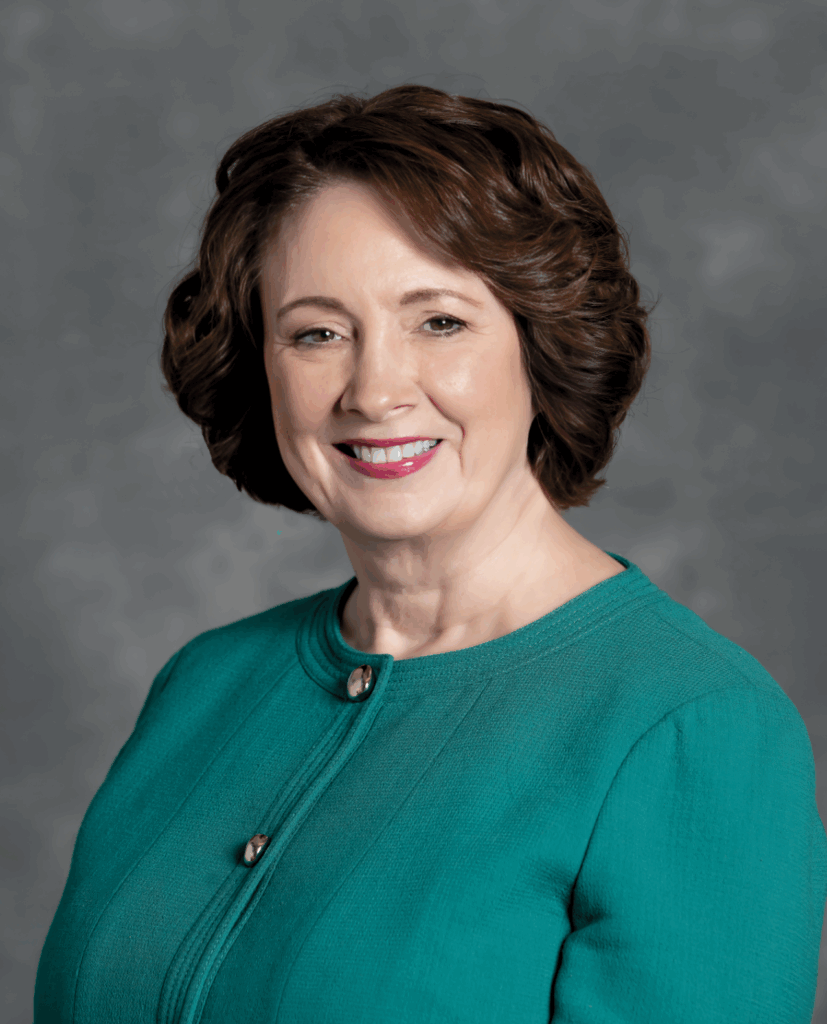

FARNAM JAHANIAN, CARNEGIE MELLON UNIVERSITY
The use of generative AI as an educational tool is a great pedagogical experiment that is only just beginning. Across every school and college at Carnegie Mellon University, we are leaning into our learning science expertise to evolve the AI educational toolkit in meaningful and responsible ways. Our faculty are asking empirical questions like: “How do we integrate AI tools into our practice to enhance learning outcomes?” And: “How do students feel about using AI tools and do their perspectives change with experience?”
We’re also piloting a range of AI applications — such as personalized AI tutors and advisors — and collecting data to refine these tools, better understand their possibilities, risks and limitations, and create the guardrails necessary to ensure their ethical use.
Building this knowledge is important, as not all AI applications are equal. Educational inequities can arise when AI tools are not universally accessible. These tools can also perpetuate social biases, discourage critical thinking and involve certain privacy and security risks.
Given the unprecedented scale, scope and speed of AI innovation, the knowledge that we are building today is critical. Done right, AI tools can unlock incredible opportunities across society and ignite one of the most sweeping and significant educational revolutions in the history of learning.
CHRIS BRUSSALIS, POINT PARK UNIVERSITY
It is clear to everyone in higher education that AI has created substantial change in the classroom and necessitated a response. At Point Park, we have chosen to not only embrace AI but also leverage it in and out of the classroom. We are enabling our students to lead in the mastery of these incredible technologies. Ethical AI use requires adding layers of learning to what students, faculty and staff already know about how to handle data, security, documentation, research, writing, collaboration, professional conduct, and analytical and critical thinking. It’s a nuanced and complex skill, and our campus is teaching and learning to support the development of that skill. Point Park’s focus on imagination, creativity, and experiential learning provides the perfect opportunity for both faculty and students to innovate and shape the next iteration of ethical AI use. Recognizing the influence and importance of something like AI is embedded in the DNA of what we do. We take great pride in providing our students with a real-world education that prepares them to immediately start building successful careers. Our degree programs are built around a deep understanding of how relevant industries and professions are changing and evolving in real time. Embracing AI and choosing to be a leader in how it is taught in the classroom is a perfectly natural thing for Point Park to do.


KEN GORMLEY, DUQUESNE UNIVERSITY
AI is clearly here to stay. Yet, its impact and potential are not fully understood because the technology continues to mature. As we look toward the future and consider how to best prepare our graduates, we’re using and studying AI in ways that support learning — rather than trying to replace it. AI is a tool. When we view it properly, we can incorporate it into teaching and research in ways that complement human intelligence. As a Catholic university, Duquesne has long made ethical considerations a centerpiece of the education we offer. AI is enormously ripe for ethical considerations dealing with safety, intellectual property, health sciences, and more. We recognize our obligation to prepare students for successful careers as active citizens. AI can help in endless ways.
Duquesne has created thoughtful guidance for using AI in teaching and research. Our faculty has developed frameworks to guide ethical and productive use of AI in the classroom and beyond. For example, we require AI tools to be part of our secure network, due to the need to secure identity and intellectual property. We also have requirements to state clearly when and how AI tools can be used in research, in class, or in an assignment. For students in specific disciplines where they’re expected to use AI, we help them become proficient in these tools by showing them how to use such tools ethically and professionally. If AI tools are permitted, it’s important to make clear what’s permissible and what’s not. Finally, and most important, our faculty strive to use AI in ways that promote human skills, like developing critical thinking and problem-solving capabilities, which is at the core of a transformational education.
RON COLE, ALLEGHENY COLLEGE
Allegheny College is a community of independent and creative thinkers that values the process of learning with purpose. Our challenge (and in education broadly) is to inspire the art and joy of learning augmented, but not replaced, by AI. Knowing that students soon will be arriving as “AI natives,” we are proactively charting our path in this new world. Our focus is on how AI might enhance student success with personalized learning and career development while emphasizing ethical use and accountability. We are promoting strategies for AI literacy and responsible engagement, and as a campus that values sustainability, I predict we’ll discuss and debate the resource intensity of AI. We recognize the opportunity for AI to assist with parsing large data and performing redundant tasks, freeing people up for more strategic work. We know that governance is necessary to manage AI’s integration into our work and that guidelines for AI use should be nimble and adaptable to the rapidly changing landscape of technology. But, as Meghan O’Rourke aptly noted in a recent New York Times opinion piece, with AI comes “the temptation to outsource thinking.” The best education empowers students to think and develop power of mind — this has been a strength of Allegheny College through our 211-year history and will remain central to our educational approach as we advance with AI.
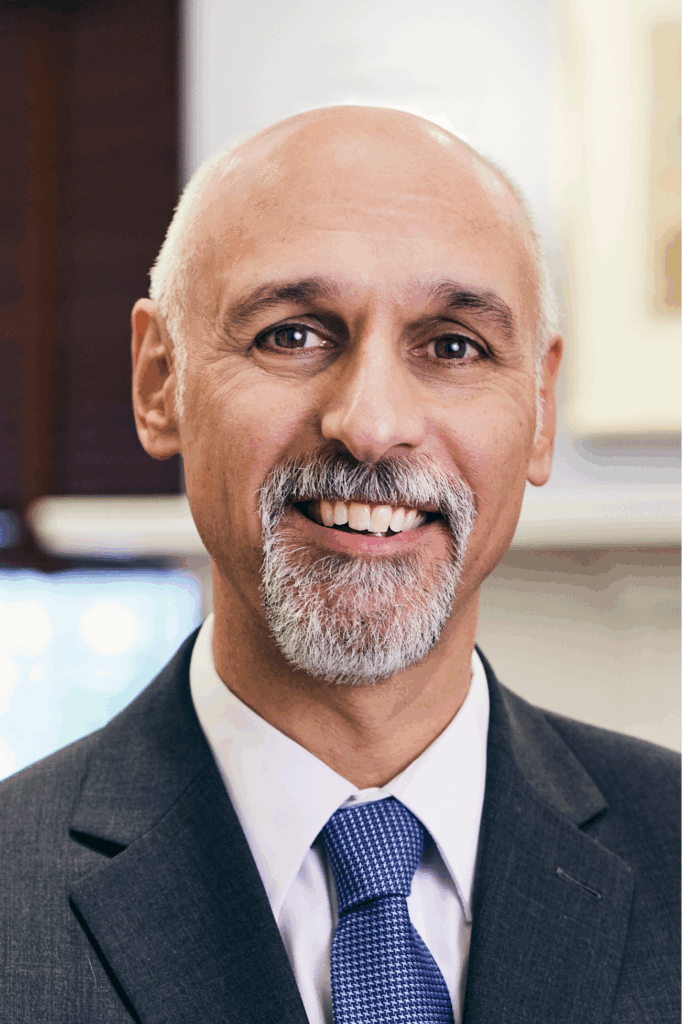
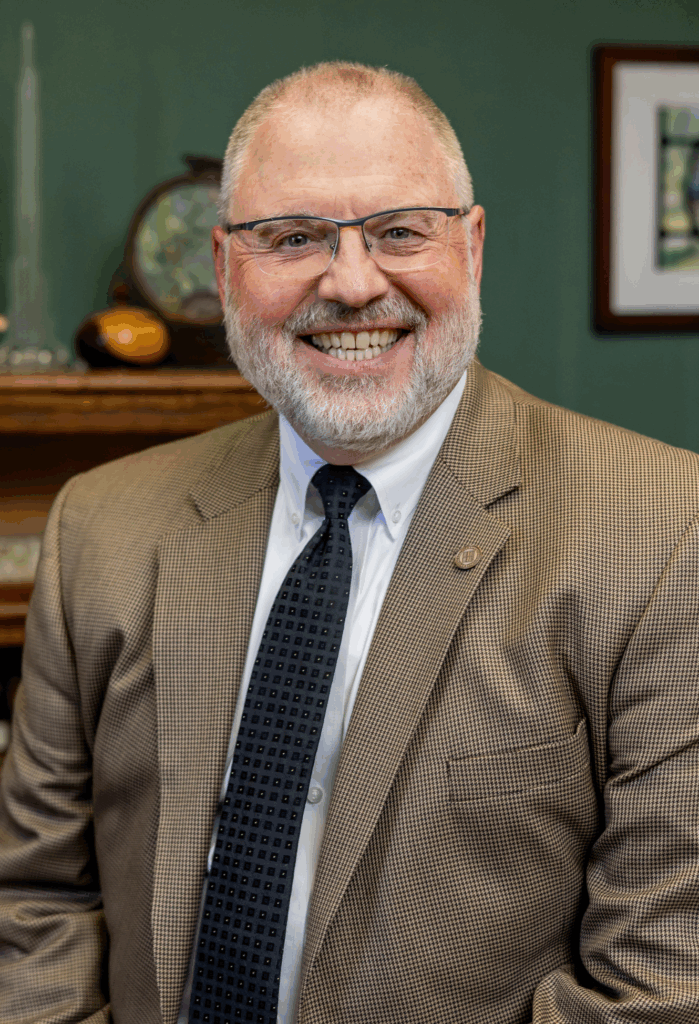
CALVIN TROUP, GENEVA COLLEGE
AI is preventing students and teachers from just going through the motions in education. The power of AI to do the mental manual labor associated with answer-based, lower-order thinking tempts students to represent machine-based work as their own. The ubiquity of large language model AI forces this issue. Therefore, our professors are retooling assignments in wonderful ways that invite creativity and disrupt student delegation of meaningful thought. For example, instructors are returning to handwritten tests and oral exams, which reinforce long-term memory, favor imagination over regurgitation, and require working discernment.
As AI takes over mental manual labor on expansive fields of data, students need to develop higher order thinking skills in research design, development, and interpretation. When nothing is at stake, playing with popular AI platforms is entertaining. But asking good questions and conducting meaningful work with professional grade AI is more demanding. We want our students to know how to interact with and analyze machine intelligence as a tool, rather than pretending that AI is a co-worker. We are incorporating essential AI understanding within our STEM majors and are offering AI-specific minors to equip our students to navigate the emerging world of AI.
In every case, we are privileging our God-given human dignity and emphasizing the precedence of human beings over all things made by human hands. AI is raising the intensity of ethical challenges for the working lives into which our students are heading. To be equipped for courageous engagement with AI they need professors who can help them cultivate the habits of practical virtue so they can serve others faithfully throughout their life’s work.
ELIZABETH MACLEOD WALLS, WASHINGTON & JEFFERSON COLLEGE
The opportunity AI presents is immense. We will be looking at our curriculum and our co-curriculum from the perspective that AI will be replacing many entry-level jobs — and asking the question: How then should we be preparing our students for leadership roles? Washington & Jefferson College teaches students to adapt so they can thrive in any environment by pivoting, problem solving, and co-creating the future with their peers and within their community. Our challenge is envisioning the living and learning experience as AI evolves; we are seeing rapid change and we need to keep pace with it. I welcome the innovations that AI will fuel at W&J both in and outside of the classroom.
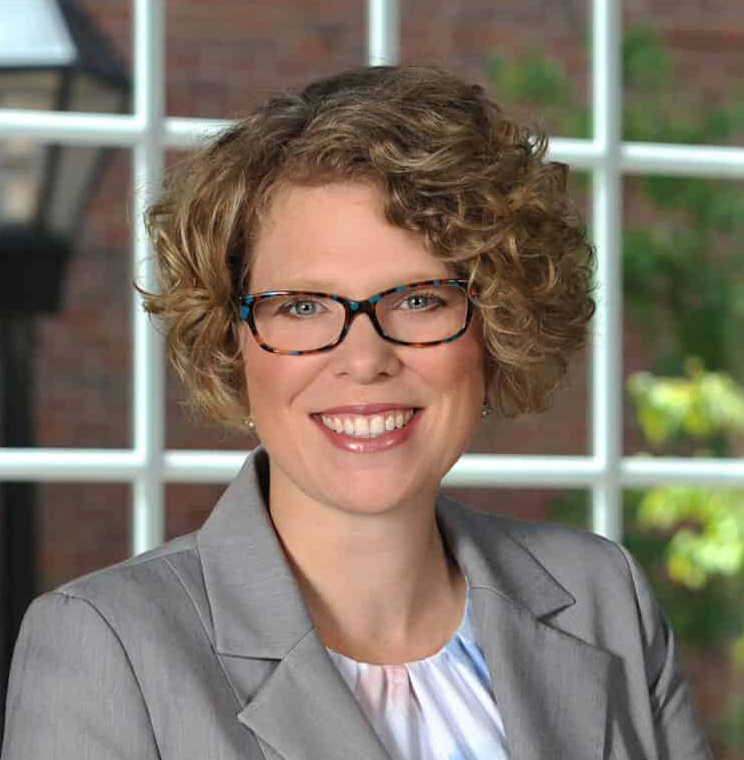
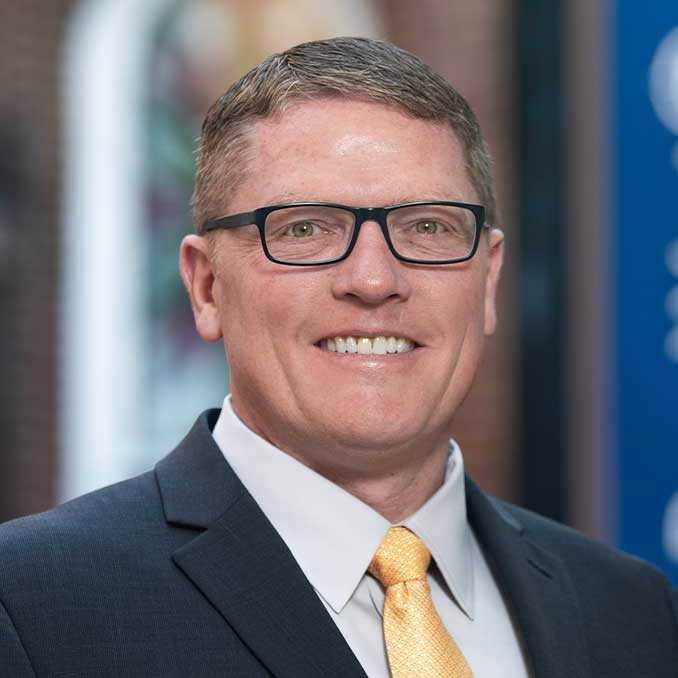
JON ANDERSON, PENNWEST UNIVERSITY
Artificial intelligence is a tool we are actively integrating to shape the future of education. Our Center for Artificial Intelligence and Emerging Technologies exemplifies this commitment, driving innovation in teaching, learning, and workforce readiness. We’re embedding AI across disciplines and expanding access to new credentials like the online Data Science Post-Baccalaureate Certificate and the AI & Machine Learning minor, which provide practical, hands-on learning in emerging technologies. Looking ahead, our stackable micro-credentials in AI and entrepreneurship — launching in fall 2025 — will offer even more flexibility for working professionals and students seeking specialized skills. AI presents powerful opportunities for personalized learning, streamlined communication and enhanced career preparation. But it also requires us to rethink how we assess learning, protect academic integrity and balance technological efficiency with human connection. One unusual challenge is the pace of change; staying current demands agility from educators and institutions alike. At PennWest, we see AI as a way to amplify — not replace — human insight. Through a combination of forward-thinking curriculum, cross-disciplinary collaboration and our expanding suite of AI-related programs, we’re ensuring that students are not only AI-literate but AI-capable, ready to lead in an evolving, technology-driven world.
KATHY HUMPHREY, CARLOW UNIVERSITY
Our Mercy mission doesn’t just influence what we teach — it shapes how we approach emerging technologies like artificial intelligence. As AI becomes increasingly embedded in the fabric of daily life, we believe it is our responsibility to engage with it thoughtfully, critically, and ethically. With extensive training emphasizing digital literacy and sustainability, our staff and faculty are consistently finding ways to incorporate this technology into their classrooms and research. By integrating AI thoughtfully into our Universal Design for Learning approach — an initiative spearheaded by Dr. Alexis Macklin, Carlow’s executive director of the Center for Teaching, Research, and Learning and Office of Student Retention — we create a more inclusive experience for all students, allowing them to engage meaningfully, learn effectively, and develop the skills to use AI responsibly. But our commitment to ethical use extends well beyond concerns about academic integrity. We challenge our students to consider the broader implications of AI: its environmental cost, the potential for bias in training data, and the importance of equitable access to these tools. By embedding AI into a values-centered curriculum, we prepare students not just to use these technologies, but to question them, improve them, and ensure they are used in service of the common good. This human-centered, justice-oriented approach reflects Carlow’s broader mission: to educate learners who are both career-ready and community-minded. AI is a powerful tool, but at Carlow, it’s never a replacement for human insight, empathy, or ethics. It’s one more way we empower our students to lead with conscience in a rapidly changing world.
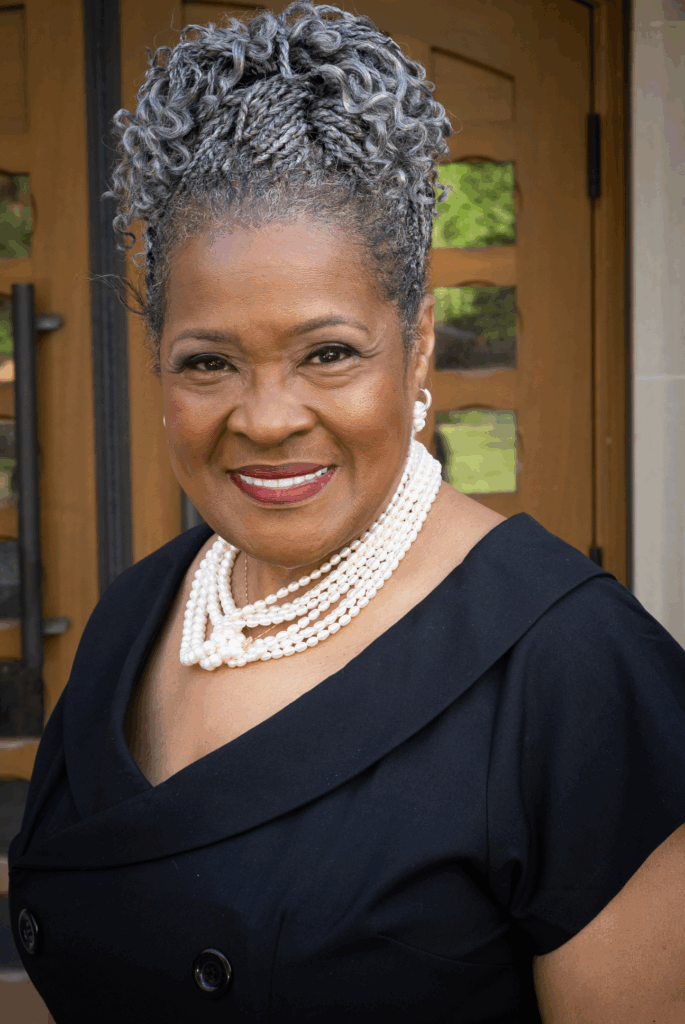
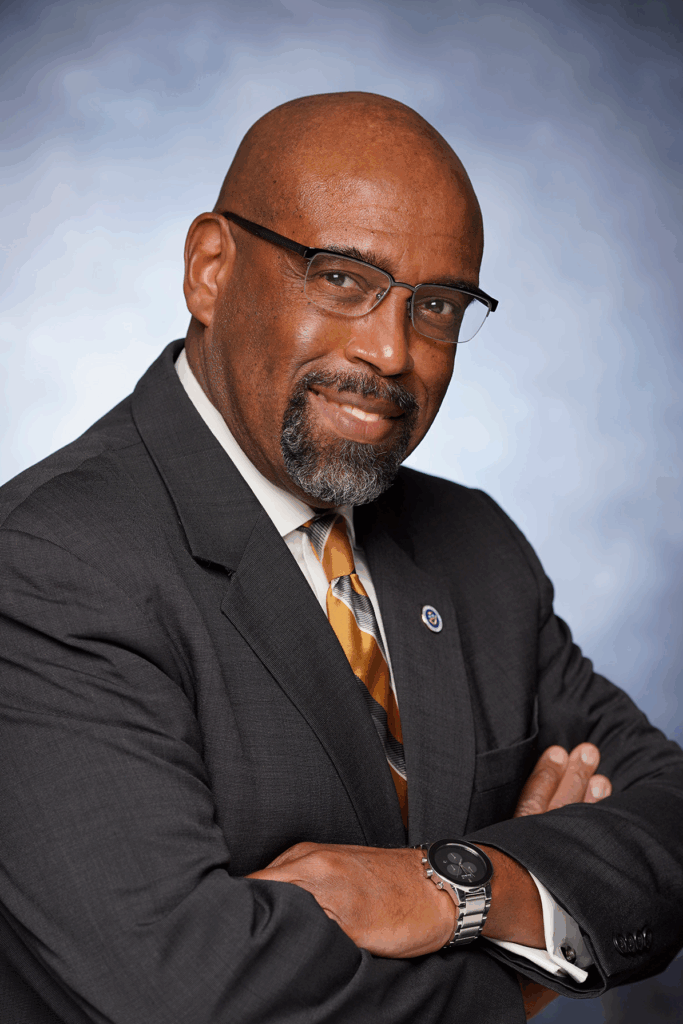
QUINTIN BULLOCK, COMMUNITY COLLEGE OF ALLEGHENY COUNTY
AI is reshaping education by personalizing learning. It adapts to each student’s needs, offers immediate feedback, and supports mastery across subjects. This flexibility benefits CCAC’s diverse traditional and nontraditional student population, enabling learning anywhere, anytime. For faculty, AI offers practical benefits: faster lesson planning and grading, real-time curriculum updates, and personalized support tools. It enables more interactive content, enhances program review through rapid data analysis, and frees up time for direct student mentorship. Administratively, AI simplifies data tracking and opens creative doors for workforce-ready tools, client simulations, marketing mockups, and mobile apps. For all its benefits, there are still pressing challenges. AI can tempt students to bypass essential cognitive tasks, undermining academic integrity and critical thinking.
Assignments must now emphasize creativity, collaboration, and reflection — skills AI can’t replicate. Writing faculty voice a particular concern: that AI discourages students from struggling through the creative process, the very effort that builds insight, empathy, and authentic voice. While AI can assist, it must not replace the messy, human work of thinking. Digital equity and neurodiversity also demand attention. Many students lack access to AI or haven’t developed the readiness to employ it effectively. We must ensure they’re not left behind in an AI-driven world. Ultimately, AI can be a powerful assistant. Our challenge is to harness it ethically, inclusively, and imaginatively to elevate learning rather than shortcut it.
MICHAEL A. DRISCOLL, INDIANA UNIVERSITY OF PENNSYLVANIA
We are seeing a lot of good, thoughtful work in curricular development and exploration of the use of AI in our work and in the classroom. As you would expect, faculty have different opinions: Some have a “wait-and-see” approach; others think we should hurry up so that our students know how to use AI effectively right now. It’s a good balance. IUP is fortunate to have the expertise of Dr. Dana Driscoll (no relation to me), founding director of the IUP Center for Scholarly Communication and professor in the Department of Language, Literature and Writing, who has developed and coordinated two AI Summits as part of IUP’s annual Research Appreciation Week. The AI Summits have involved faculty, students, and staff (including our chief information officer) to talk about various aspects of AI; we’ve been learning together and from one another. Almost 200 people attended the 2025 AI Summit, including 150 students. IUP is privileged to have that kind of work going on here; it’s special to IUP, as it spans across research and innovation functions, departments, and disciplines. IUP is doing the right kind of engaged research on this — for now and for the future — involving students, faculty, staff, alumni, and businesses, while continuing our leadership role in teaching computer science and cybersecurity, as we’ve been doing for a very long time.
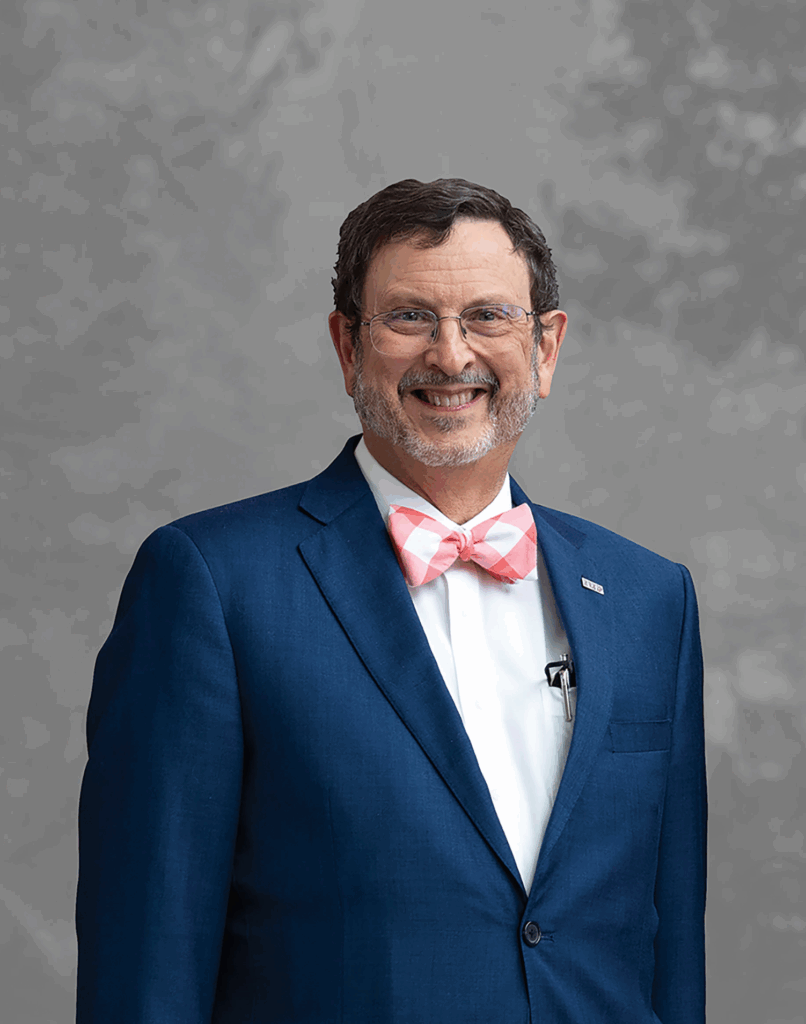
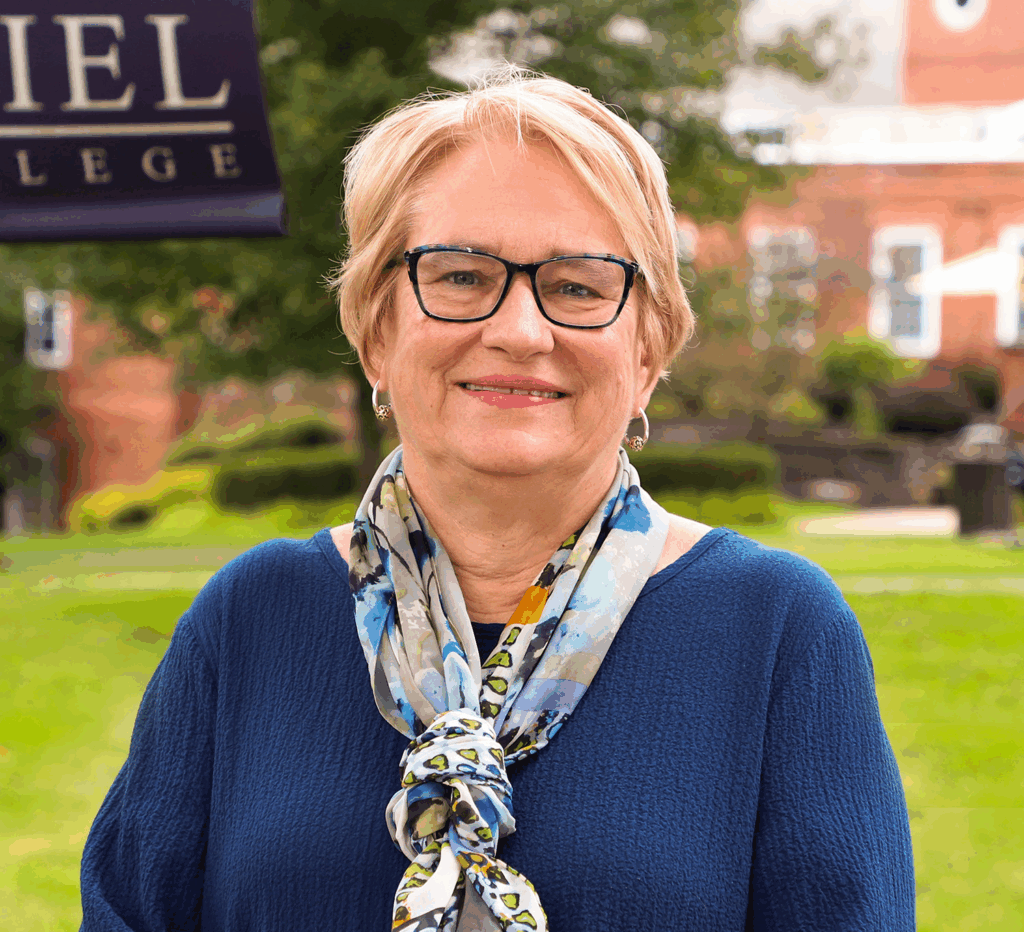
SUSAN TRAVERSO, THIEL COLLEGE
At Thiel College, we view artificial intelligence as both a tool and a subject of critical study. Through a recent National Endowment for the Humanities grant, we’re integrating AI and other digital tools into our humanities curriculum to expand student access, strengthen digital literacy, and foster thoughtful campus dialogue around emerging technologies. Faculty are designing new courses and modules that incorporate platforms like AI, website design, and digital archives. These innovations offer exciting opportunities for students to engage deeply with content and develop the critical thinking skills needed to navigate a complex digital world.
But AI also presents challenges—especially regarding academic integrity. Its ability to quickly generate content blurs the line between student voice and machine output. That’s why we emphasize ethical use, proper attribution, and the limitations of machine-assisted work across our community.
This fall, Thiel will participate in the Council of Independent Colleges program “AI Ready.” The 12-month program will build capacity and expand appropriate usage of AI across several administrative units at the College.
Every new technology, from the printing press to the internet, reshapes how we understand the world. AI is no different. It must be approached with curiosity, skepticism, and context. In our liberal arts tradition, we teach not just how to use these tools, but why to question them. It is essential to consider whose voices are represented, what biases may exist, and how human judgment must guide digital engagement.


